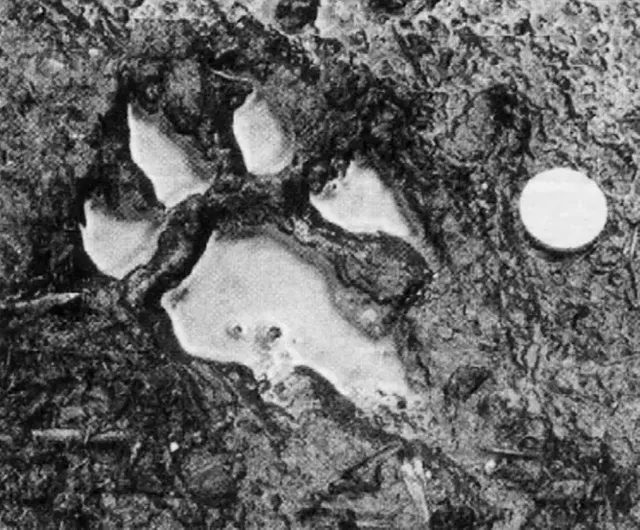The Beast of Bodmin - Myth of Reality?
.webp)
The Beast of Bodmin is a creature that refuses to go away, whether it be a local cat assumed to be extinct or an escaped foreign pet. Indeed, sightings of the panther-like monster persist, and, unlike previous enigmatic animals, contemporary technology is assisting in proving its existence. Bodmin Moor National Park is located in Cornwall, southwest England. There have been over sixty sightings of big cats in the region since 1983, and some experts believe there may be a breeding colony on the moors. In fact, a mother cat and her youngster were recently seen together. Despite several credible witnesses' testimonies, a British government assessment issued in 1995 determined that there was no evidence of large cats on the moors.
However, some pretty surprising, physical evidence has been revealed since 1995. In a 20-second film published in July 1998, a massive black animal can plainly seen traversing the moor.
The film, according to experts, is the greatest evidence yet to support the theory that large cats live in the region.
Many people believe the monsters are a local variety of cat that was considered to be extinct over a century ago. Maurice Jenkins, a quarry weighbridge worker, was traveling around Exmoor, near Bodmin, around the time the film was released, when he noticed a weird beast on the side of the road. He focused his car's headlights on the beast. Jenkins later stated:
‘It was a big black pussycat. His eyes reflected in my headlights and slowed down so I could get a better look and it sat watching me. It was the size of a collie dog with a jet-black head and tail. He leaped away and made off into the fields.’
In recent years, genuine biological evidence has also been discovered. On Bodmin Moor, a gigantic skull with enormous teeth was discovered near the River Fowey. The bones were brought to mammal experts at the British Natural History Museum, who soon determined that the cranium did not belong to a species found in the English countryside. They also inferred that it was the skull of a huge cat based on the size and arrangement of the teeth.
A rash of farm animal mutilations on Bodmin Moor in November 1999 prompted the introduction of a high-tech alternative for tracking down the beast. When an unknown beast attacked and tore apart a calf and two sheep, a motion-activated infrared video camera was mounted on the moor. Similarly, in January 2001, reserve volunteers from a nearby Royal Air Force installation hunted for the monster using cutting-edge night-vision military equipment. Rather of practicing drills against a fictitious opponent, RAF leaders believed it would be more exciting for men to search for the mythical Beast of Bodmin. It is unknown whether the RAF discovered any evidence of the Beast.
The concept of odd huge cats prowling Britain is not entirely outlandish. A strange, vicious-looking wild animal was discovered in the yard of a house in Barnet, north London, in May 2001. To catch what proved out to be a lynx, a large team of armed police, RSPCA inspectors, and veterinarians was required. A similar incident occurred in September 1998, when residents in Potters Bar and South Mimms were warned to stay home while police searched for a huge cat spotted nearby. However, in general, such creatures pose minimal risk to the human population.
Farmers in southwest England disagree that these creatures are harmless, and many skeptics believe the Beast of Bodmin is, at most, an escaped foreign cat. Every year, a number of exotic large cats go missing from zoos and wildlife parks, and Britain's Dangerous Wild Animals Act of 1976 made possession of exotic big cats illegal. Some feel that if a creature like this were to escape from a private collection, its owner would be unwilling to declare it missing. Whatever the reality is, there is mounting evidence that a giant, black, wild cat is roaming the area of Bodmin Moor.